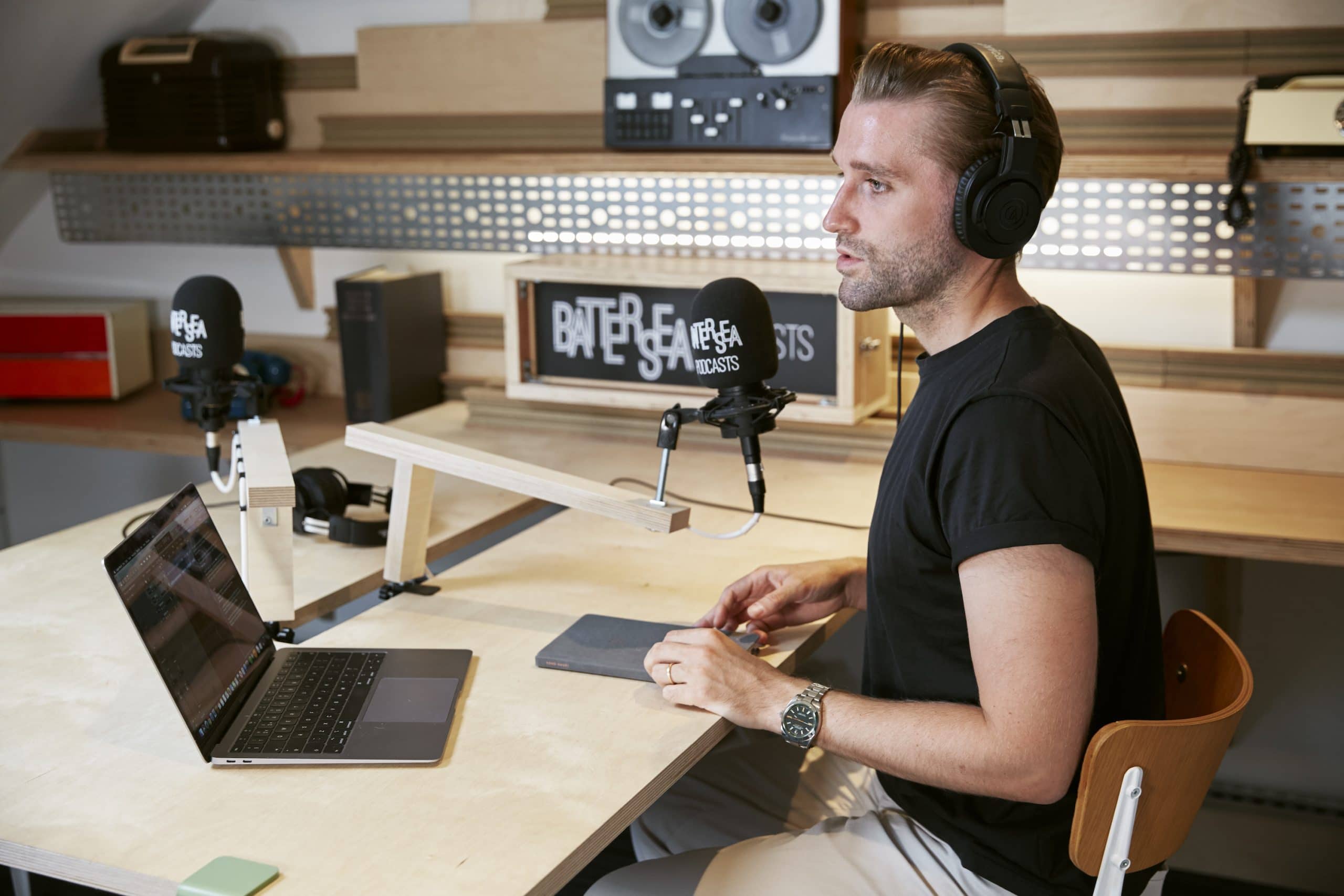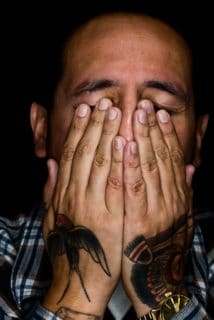An interview with Euan Plater, the man behind the best new podcast about men that’s out there: XY
When surveying the podcast landscape, gazing out at the fields of pods in the shadows of Mount Buxton, at The Book of Man we have obviously been focusing in on those about masculinity and mental health; but we haven’t really seen one that has captured this transformative moment for men today. Until now. Euan Plater is an ex-men’s style man who has moved with entrepreneurial verve into the podcast market with his new company Poste Media. Poste’s tagline is ‘Everyone has a story. We believe in telling those stories’ and the first pod they’ve released with that philosophy is called ‘XY’ which delves into the links between mental health and masculinity in a manner which is both in-depth and easy on the ear. Euan hosts XY himself and has already shown a natural talent for drawing out the innermost thoughts of his guests, which have so far included social media style star and filmmaker Jim Chapman, The Vamps’ James McVey and writer and mind coach Vex King. The idea is to create a forum in which to exemplify and encourage men to open up with each other; as we all know, this is a potentially life saving matter.
We sat down with Euan ahead of his appearance at our big Movember event on 31 October (Buy tickets here) to find out more about XY and the value in challenging stereotypes. The time is right for this one…
When did you first have the idea for XY?
Through all of last year mental health and men was something I was thinking a lot more about it personally, in terms of what I’d experienced and also looking at my friendship groups and family, and thinking that we were all having the same conversation in the dark. It seemed like the worst kept secret that guys needed to talk about their mental health. Everyone wanted to, but for some reason it wasn’t normalised.
When I started setting up Poste, this podcast media company, I thought about what I wanted my first show to be about, and men and mental health was the obvious choice. And when I reached out to men to appear on the show, I had this overwhelmingly positive response. I think all guys now, whether they’re celebrities or whether they’re your best mate in the pub, have this overriding desire to speak about how they feel. Also they actually have this real philanthropic desire to encourage other men to do the same. It’s a community thing, to vocalise how you feel in the interests of enabling others to do so too.
Did you experience any issues you wanted to reach out to your friends about?
There were a few things that had gone on in my life that I think would have been made easier had I felt comfortable talking about them, but there was no big life changing epiphany moment. I think it was an ages and stages thing – once you’ve been out of university for five or six years, you hit that quarter life crisis stage when you start thinking, ‘what am I building up to? What am I working towards? Where do my ambitions lead to?’
Those thoughts have a certain amount of baggage because they make you think about who you are as a person. And in this case, who you are as a man. But I wasn’t having that kind of conversation very frequently with my male friends. In contrast, when I looked to my wife and her friends, it felt like women were having these conversations way more openly and there was no sense of failure when they spoke about it. Whereas there was this inbuilt sense of lacking something, or failing in some way, if you felt like that as a man.
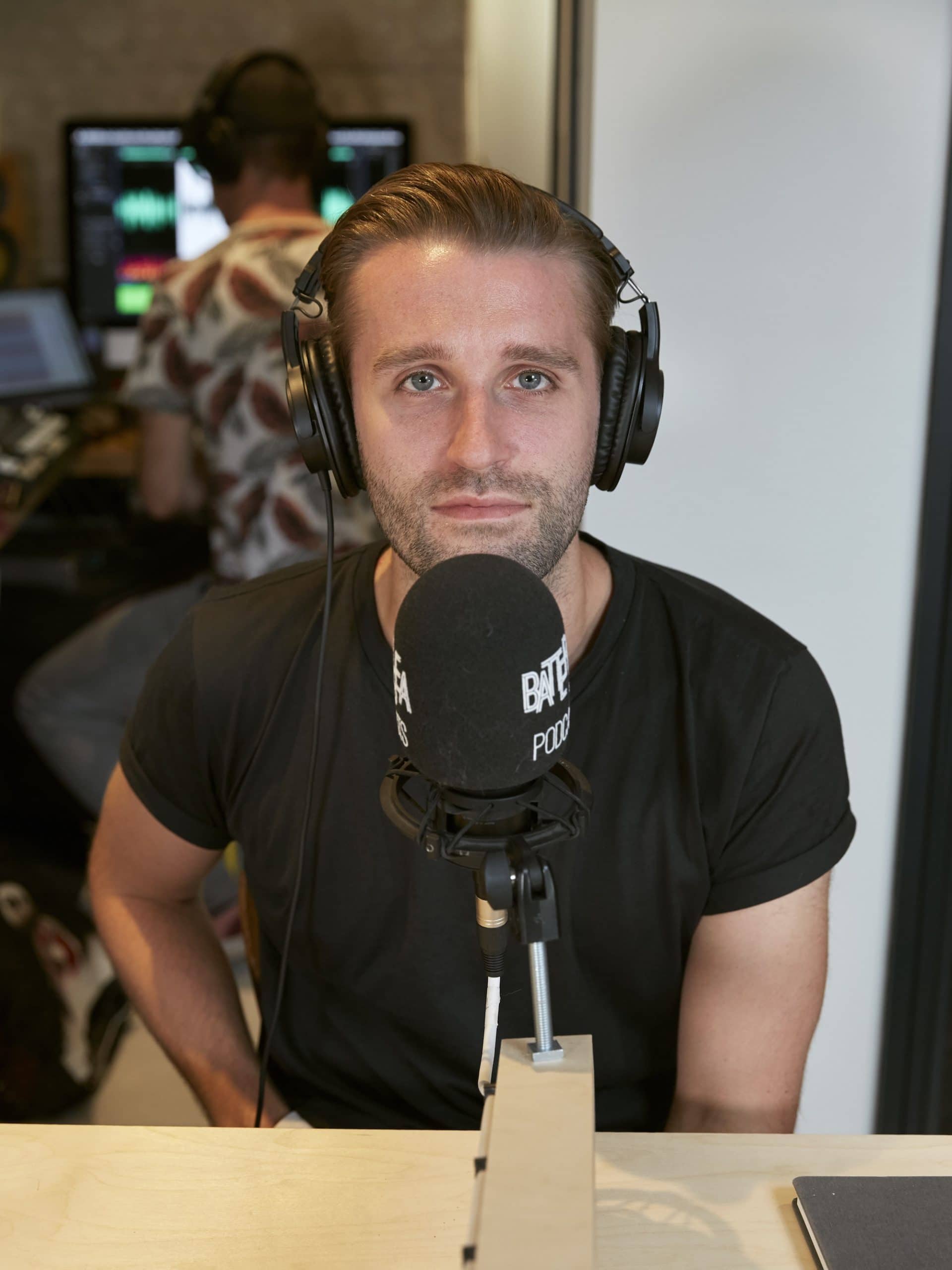
Did it feel awkward with your mates when you did start talking about this stuff?
No. Not at all. I think the fear of it is something that’s held by the individual, not the other person. So even though you as an individual might not want to open up, the person that you’re talking to is normally very receptive. In my experience that’s encouraged other men to open up but at the very least they’re receptive to you – there’s never a ‘shut up’ or ‘we don’t talk about this kind of thing’. The stereotype never been proved right in my experience, it’s always been an inbuilt fear rather than a validated one.
The time feels right for this doesn’t it?
Exactly. There’s not many places to find something that doesn’t feed into the stereotypes of what it means to be a man. I think really good content about mental health in men doesn’t exist that much. I couldn’t find many podcasts which were focused just on that, so it felt there was a bit of niche there. But the core of the Poste company is our strapline: ‘Everyone has a story. And we believe in telling those stories.’ Sharing human experiences is the core of what we’re here to do. We’re interested in effecting change through conversation, and we think podcasting is the best possible way of doing that.
It gives men a place to go to hear other men. Whether it’s a celebrity or an expert or just an ordinary guy who’s gone through something – you can hear that individual open up to me and the other people on the podcast.
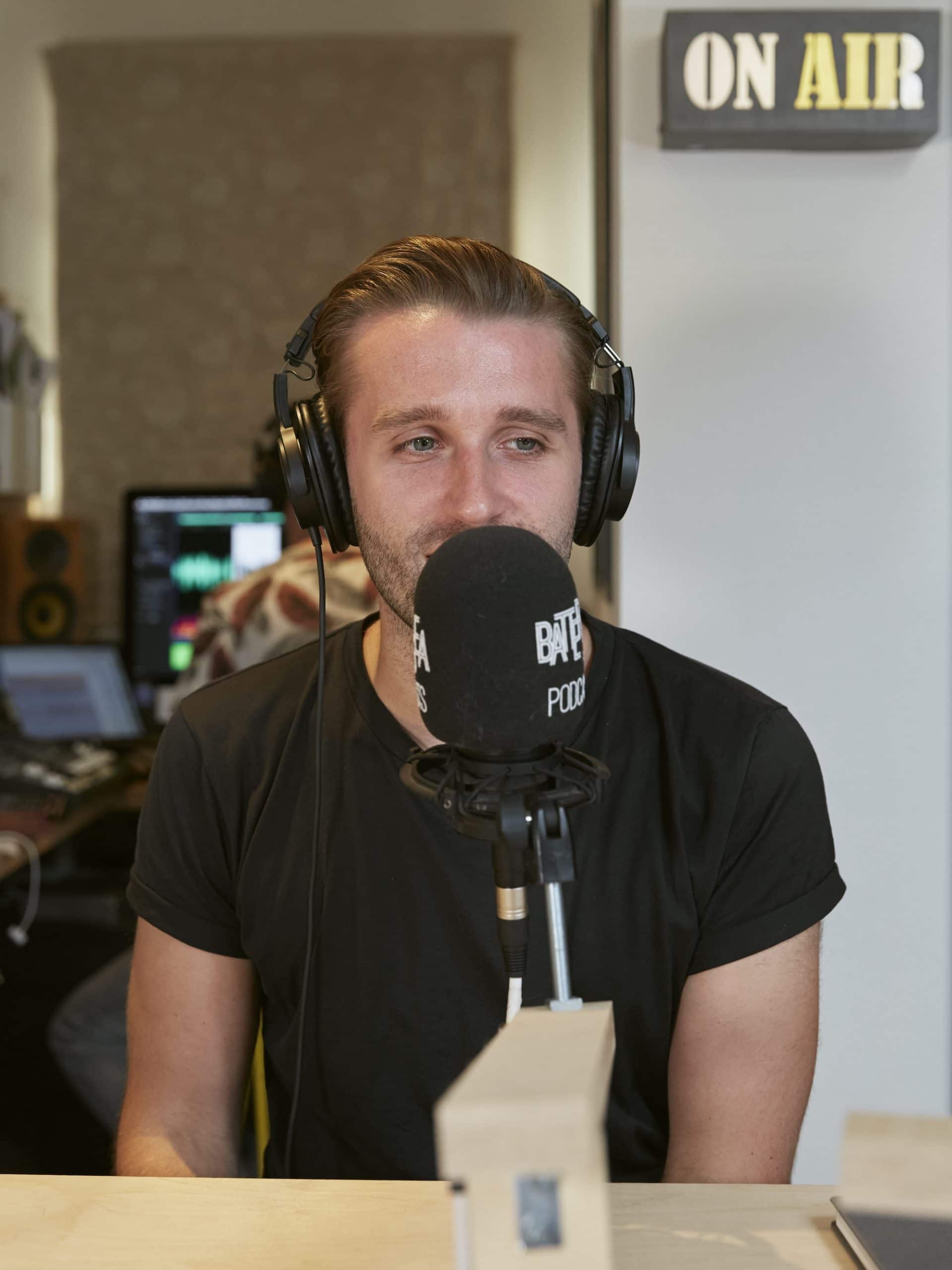
How have the first episodes gone?
They’ve been interesting to record. For me personally, I’ve found them quite enlightening. I’ve walked away with a lot of ideas that I’ve taken back to myself. Often the guys in the interview have opened up to something that has made me think, shit, am I carrying any baggage in that respect as well? And it makes me reflect on that. So it’s great that it’s some kind of catharsis to both people involved.
But the most fascinating thing that’s happened with going through the journey of creating each episode, is how its empowered people to open up in ways that has surprised me. For example, I did an interview last week and the producer we were working with decided to tell me his father died by suicide. That sounds like quite a big confession but it was almost as if the conversation prior to it had levelled any kind of risk of opening up, and he felt comfortable enough to share his truth. That’s happened multiple times – when I’ve told friends, or friends of friends, about the show it’s encouraged them to then tell me something personal about them.
For me, other than trying to make great content, the show’s actually been a great leveller as far as getting people to show me a relatively vulnerable and honest side of themselves.
It’s interesting that men merely need a bit of permission; it’s all there waiting but is kept underneath the surface…
Totally and it came up in the Jim Chapman interview when we spoke about when someone asks how you are, and quite often you’ll say ‘yeah ok. Not great.’ And that ‘yeah ok. Not great’ can exist as a myriad of emotions. But to dive deeper into finding out more feels like quite a commitment. Even if it’s your best friend, to then dig into something quite personal feels like a big risk.
I’m not a mental health expert, I’ve got as many questions as anybody else, and why that barrier is there is a question for me as much as anyone else.
And that’s another thing s about the show. It’s not supposed to be anyone’s solution, it’s not supposed to be treatment, it’s supposed to be enabling. That’s all it’s ever meant to do.
Right, so you’re allowing people to tell their stories, but you also can also find advice within that?
Absolutely. There is advice within it. People are sharing what has worked for them. Absolutely listeners can take that away and see if it works for them. But it’s not prescriptive, it’s anecdotal.
You mention Time to Change in the intros to the podcast…
Yeah ‘Time to Change’ is a mental health anti-stigma movement. They were the first people we approached way before we went into production of the show. I reached out to them because they’re doing such great work in the industry. They approach mental health from two angles: on the one side they’re addressing it by getting hundreds of companies around the country to sign their pledge to take mental health more seriously in the workplace. And on the other side, they’re working on consumer campaigns to encourage men to be more open about how they feel. Their ‘Ask Twice’ campaign is the one I specifically partnered with. This is what we’ve been talking about: if you ask someone in the pub if they’re fine, you should ask twice, and then you’ll get a more honest answer.
I love that, it captures something about the way men relate to one another…
Exactly, it comes back to enabling men to speak about how they feel. If I’m the vulnerable one it lets someone else be vulnerable too. If you ask a guy once they may well give a generic answer, but the act of asking again infers a genuine concern, a genuine interest on your part. That’s one of those tools that hopefully encourages guys to reach out to that outstretched hand.
Can we go back to the way men relate to each other in a friendship group, in contrast to women. Is that the way men are or is it more of an educational thing of how we’re brought up?
I don’t know, you can quickly get into that question of nature or nurture. I actually don’t think you should address that question prior to getting men to be more vulnerable. I would say whether we’re built to be like that or whether we’ve learned it, it is definitely the reality.
I’d say men are quite task oriented, so if I bring up an emotional concern, both me and the other man are probably quite geared to fix that problem. To listen to it, discuss it, but then to try to draw a line under it and move past it. Women are much more ok with the ellipses at the end of a sentence. They can chat about the problem then chat about other things, have a laugh with a bottle of wine, go back to the problem, discuss it some more. There’s catharsis in the conversation more than the solution itself. And I think that’s maybe one of the big things that guys haven’t quite got their heads around yet is to understand the purpose of opening up. It can just be the act of talking it through with a loved one.
How have you found the interviews, have people opened up quickly or has it taken a while?
Most of the time they have opened up quicker than I expected to. But of course we both know why we’re there. It’s not like I’m interviewing them about a job then hitting them with some heavy mental health talk. So the fact they know it’s about mental health makes them comfortable to be a bit more open. The Orlando von Einsiedel interview was an interesting one. I say in the intro that I was a bit nervous about it because in the documentary he made about his brother’s suicide you get this real sense of distress. His anxiety and fear about dealing with the death. So for me to walk into his studio and ask him questions about the suicide…that felt quite invasive. I went into that with a barrier up as I didn’t want to offend him, when in actual fact he was more than happy to chat about it, and he was the one that brings up the death of his brother.
That’s been an interesting thing to learn. You don’t’ have to tiptoe around issues, guests are more than happy to talk, and they’re effectively doing the show to get that message out. It’s been a very philanthropic exercise for the guests.
Can you tell us about what’s happening with Poste?
Poste’s idea is to create editorial shows and tell people’s stories. We’ll continue to do talk shows and we also have the goal of creating some bigger journalistic pieces. I think a big thing for me is we are always looking for people to come to us with a story as well, so if someone has an idea for a show and they want to work on it with us, I’m more than happy to partner with people.
How do you see the podcast landscape now? It doesn’t seem like a trend anymore but something people love and is part of their lives now…
Yeah I think it’s grown really organically, it’s not been something that’s been pushed by the industry. Podcasting has come from a real natural desire for people to educate themselves and engage with long form content at a time and place which is up to them. There’s an entire plethora of things out there now. If you want to listen to a podcast about Facebook marketing tactics you can, if you want to laugh for 45 minutes you can, if you want to cry for 45 minute you can. I think the way audio storytelling engages with the brain psychologically does something quite different to the way video or copy does to the brain. It allows you to really think and consider what you’re taking in.
How are you finding listening to your own voice?
I’m getting more used to it now. At first I thought the podcast won’t work because I sound horrific. The first time you hear yourself recorded, it’s not a very nice experience.
My only real complaint is that a few people have said I have a lovely Edinburgh accent and as a native Glaswegian that’s categorically not allowed.
And finally what you do want XY to do for men?
I see this as the essential podcast about mental health for men. However, there’s a lot about being guys that’s hugely detrimental for us and for women as well. So as much as it is a podcast about men it’s certainly not a podcast just for men. It’s really about how we evolve as a society. It’s not just about getting men to talk more openly it’s about how we benefit people everywhere into becoming better versions of themselves.
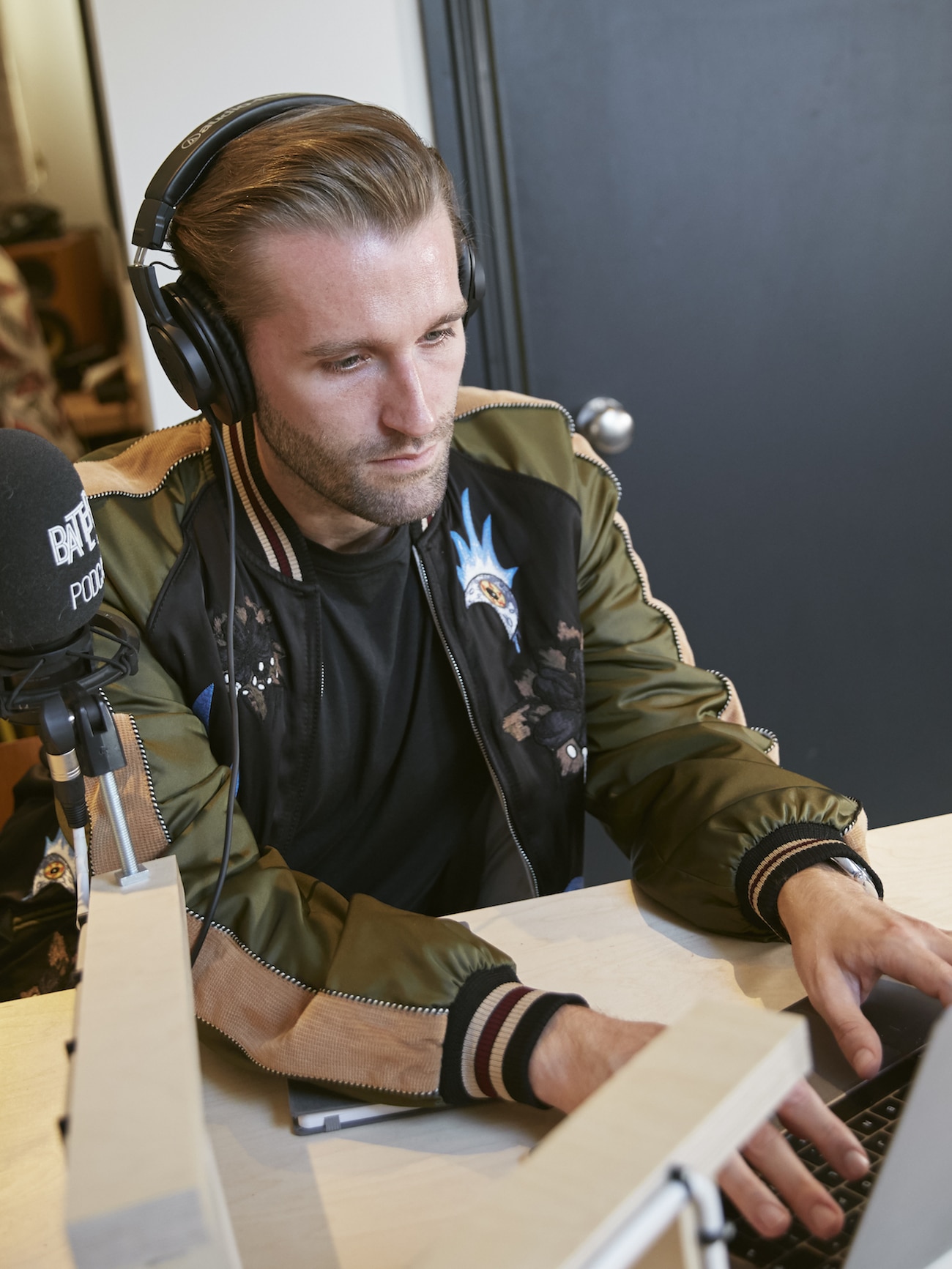

Follow Euan and the Poste Media team @PosteMedia. You can download and listen to the XY Podcast on all platforms by clicking here.

Trending

Join The Book of Man
Sign up to our daily newsletters to join the frontline of the revolution in masculinity.




